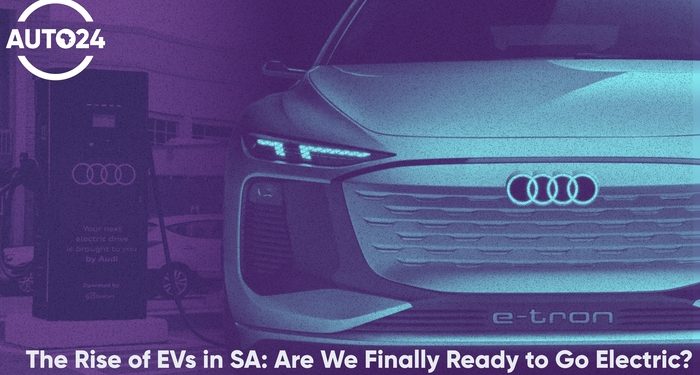For years, South Africa’s electric vehicle (EV) market was considered niche. High prices, limited model selection, and a sparse charging infrastructure kept mass adoption out of reach. But in 2025, momentum is building. New government policies, technological advancements, and growing environmental awareness are fueling a new wave of interest.
This article explores whether South Africa is finally ready to go electric — and what hurdles and opportunities lie ahead.
1. Current Market Landscape: How Far Have We Come?
The South African EV market has made notable progress since its slow beginnings in the 2010s. While EVs still represent a small portion of total vehicle sales, the pace is accelerating.
Key Statistics:
- EVs now account for 1.2% of new car sales (up from 0.4% in 2022).
- Year-on-year EV sales have grown by over 80% between 2023 and 2025.
- More than 15 fully electric models are now available from brands such as BMW, Mercedes-Benz, Volvo, BYD, and GWM.
2. Charging Infrastructure: Growing but Uneven
One of the biggest challenges to EV adoption in South Africa is the charging network — but things are improving.
Public Charging Points:
- Over 500 public charging stations are currently operational.
- Major hubs include Johannesburg, Cape Town, Durban, and Pretoria.
- Fast-charging corridors are being established along the N1, N3, and N4 highways.
Private Sector Involvement:
- Companies like GridCars, CHARGE, and EVRT Africa are leading the rollout of new stations.
- Solar-powered charging is gaining popularity to offset load-shedding challenges.
3. Consumer Demand: Growing Interest Among South Africans
South African drivers are becoming more receptive to EVs, driven by:
- Rising petrol and diesel prices
- Increased environmental awareness
- The appeal of new technology and low running costs
Younger, tech-savvy buyers in urban centers are leading the charge — but demand is also growing among fleet operators and corporate buyers seeking green credentials.
4. Government Support: Steps in the Right Direction
While lagging behind European markets, the South African government is starting to take EV policy seriously.
Incentives on the Table:
- Discussions to reduce EV import tariffs (currently at 25%) are gaining traction.
- Tax breaks for local EV production and battery assembly are being considered.
- A Green Paper on New Energy Vehicles outlines a roadmap for EV adoption through to 2035.
Local Manufacturing:
- Major brands and OEMs are planning local assembly of EVs within the next 3–5 years.
- The government is investing R1 billion to kickstart the local EV value chain.
5. The Model Range: More Choice, More Competition
Until recently, EV choice in South Africa was limited to luxury brands. That’s changing.
Key Models in 2025:
- BYD Dolphin — One of the most affordable EVs in SA (~R700,000)
- GWM Ora Cat — Retro styling with advanced features
- BMW iX1 / i4 — Premium performance EVs
- Volvo XC40 Recharge — Compact luxury SUV
- Mercedes-Benz EQ range — Top-end luxury
As more mass-market EVs enter the market, expect increased affordability and competition.
6. Challenges to Widespread Adoption
Despite progress, South Africa faces several barriers to full-scale EV adoption.
Load Shedding and Grid Reliability:
- Regular power outages remain a concern.
- Grid upgrades and solar-based solutions are essential to support future demand.
High Upfront Costs:
- Even entry-level EVs remain R200,000–R300,000 more expensive than petrol equivalents.
- Incentives are needed to bridge this affordability gap.
Rural Coverage:
- Charging infrastructure is concentrated in urban areas.
- Expanding fast-charging into rural and secondary markets is critical.
7. EVs and Sustainability: Long-Term Environmental Gains
EVs offer several sustainability benefits:
- Zero tailpipe emissions
- Lower lifecycle emissions when powered by renewable energy
- Reduced air pollution in urban centers
As solar adoption grows and the grid becomes greener, EVs will have an even larger positive impact.
8. AUTO24: Helping Drivers Navigate the Transition
AUTO24 is making it easier for South Africans to explore and adopt EVs.
Key Services:
- A growing inventory of pre-owned and new EV models.
- Certified vehicle checks for EV battery health and range.
- Tailored finance options for EV buyers.
- EV knowledge hubs to help first-time buyers understand ownership.
AUTO24 is helping remove the barriers — making EV adoption more accessible and hassle-free.
9. The Road Ahead: What Will It Take?
To truly take EVs mainstream, South Africa needs:
- Lower import tariffs and price parity
- Grid reliability and solar-charging solutions
- Expanded charging coverage
- Increased model availability, especially in the sub-R500,000 segment
- Public awareness campaigns to educate buyers
If these conditions align, EV sales could surpass 5% of new car sales by 2028 — and 20% by 2035.
Conclusion: Cautious Optimism for an Electric Future
So — is South Africa ready to go electric?
The answer in 2025 is: nearly there. The appetite is growing, infrastructure is improving, and both government and private players are moving in the right direction.
With continued investment, smart policymaking, and consumer education, the coming years could mark a tipping point — and AUTO24 will be at the forefront, helping South African drivers embrace a cleaner, greener future.





